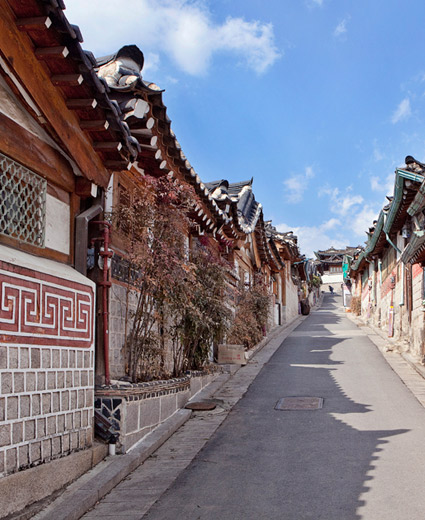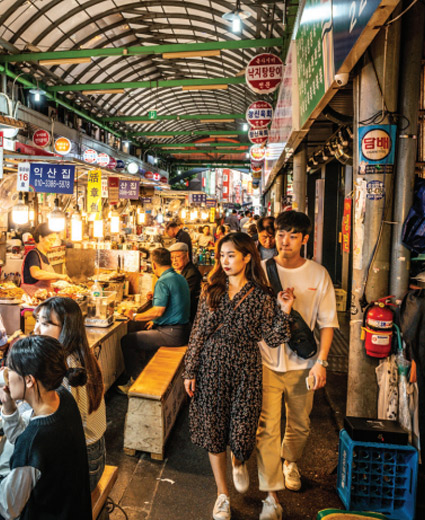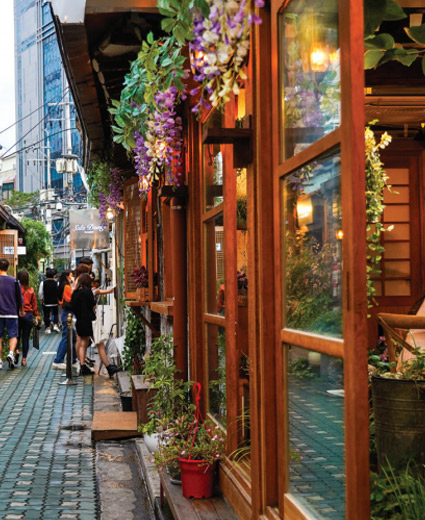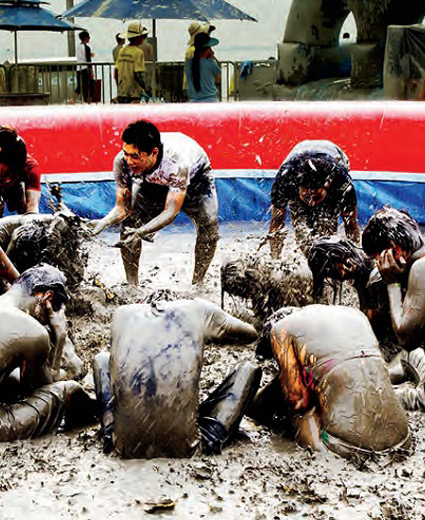Ikseon-dong Hanok Alley
In recent years, Ikseon-dong Hanok Alley have been in the spotlight as a popular place favored by young Koreans. Most of the alleys are so narrow that it is difficult to park or walk with more than three people side by side. This space, which was for working or living, has been reconstructed with modern accents into a space for new cultural consumption, providing unusual enjoyment.
Located in Jongno-gu, Seoul, Ikseon-dong Hanok Alley has been designated as the oldest hanok village and last hanok district in Seoul. In recent years, old hanoks have been renovated into restaurants, cafés, and cute prop shops throughout the maze-like alleys. As this hanok village is widely publicized through social networking services, it is a must-visit attraction in Seoul.
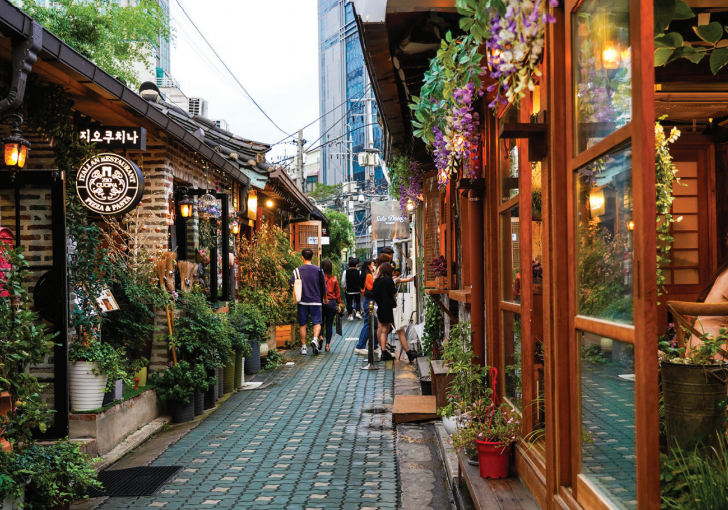
Seongsu-dong, located in Seongdong-gu, Seoul, had been known as a Seongsugu Handmade Shoe Street since the 1970s. Since the 2010s, a series of unique emotional cafés and trendy fashion shops have opened in this neighborhood, with more and more digital nomads and couples visiting here for working and dating, respectively. Now it is recognized as a popular attraction.
Nowadays, as famous fashion shows and cultural exhibitions are held in Seongsu-dong, with more pop-up stores opening, the Seongsu-dong street has rapidly emerged as a mecca of fashion and culture.
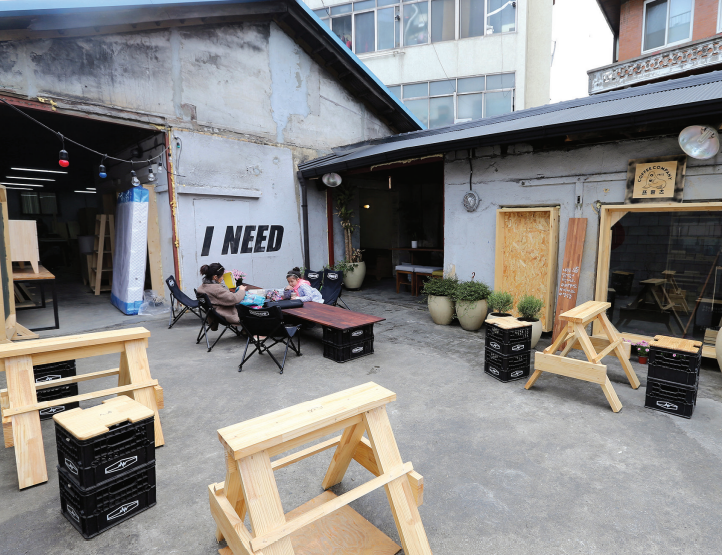
Euljiro Street
Euljiro Street, located in Jung-gu, Seoul, was thought of as a desolate neighborhood a few years ago. This is because it was packed with shabby shops such as print shops and hardware stores, which are symbols of the old industry. Recently, however, this street has emerged as a new cultural space. In particular, the desolateness of Euljiro where time seems to stand still has rather stimulated analogue sentiments and memories due to the recent “Newtro” craze. This serves as a driving force for the transformation of the obsolete space into a new cultural product. Cafés, pubs, and culture complexes targeting young people’s tastes are combined with the old print shops and hardware stores, thereby creating a heterogeneous but unique aura.
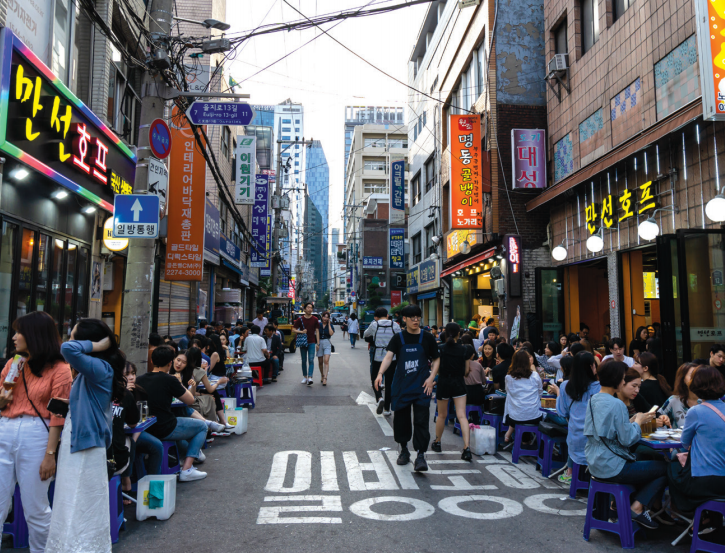

In recent years, Ikseon-dong Hanok Alley have been in the spotlight as a popular place favored by young Koreans. Most of the alleys are so narrow that it is difficult to park or walk with more than three people side by side. This space, which was for working or living, has been reconstructed with modern accents into a space for new cultural consumption, providing unusual enjoyment.
Located in Jongno-gu, Seoul, Ikseon-dong Hanok Alley has been designated as the oldest hanok village and last hanok district in Seoul. In recent years, old hanoks have been renovated into restaurants, cafés, and cute prop shops throughout the maze-like alleys. As this hanok village is widely publicized through social networking services, it is a must-visit attraction in Seoul.

Ikseon-dong consists of maze-like alleys lined with modernized hanoks which have been renovated into cafés and restaurants with a unique atmosphere.
Seongsu-dong, located in Seongdong-gu, Seoul, had been known as a Seongsugu Handmade Shoe Street since the 1970s. Since the 2010s, a series of unique emotional cafés and trendy fashion shops have opened in this neighborhood, with more and more digital nomads and couples visiting here for working and dating, respectively. Now it is recognized as a popular attraction.
Nowadays, as famous fashion shows and cultural exhibitions are held in Seongsu-dong, with more pop-up stores opening, the Seongsu-dong street has rapidly emerged as a mecca of fashion and culture.

Seongsu-dong, a handmade shoe factory zone in the past, has been transformed into a popular cultural space for young artists.
Euljiro Street
Euljiro Street, located in Jung-gu, Seoul, was thought of as a desolate neighborhood a few years ago. This is because it was packed with shabby shops such as print shops and hardware stores, which are symbols of the old industry. Recently, however, this street has emerged as a new cultural space. In particular, the desolateness of Euljiro where time seems to stand still has rather stimulated analogue sentiments and memories due to the recent “Newtro” craze. This serves as a driving force for the transformation of the obsolete space into a new cultural product. Cafés, pubs, and culture complexes targeting young people’s tastes are combined with the old print shops and hardware stores, thereby creating a heterogeneous but unique aura.

Euljiro and Jongno, largely composed of long-established shops and stores, attract young office workers and students, triggering their retro sensibility.

